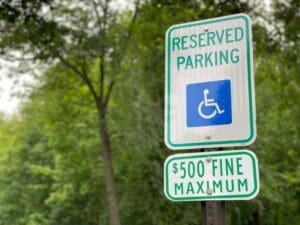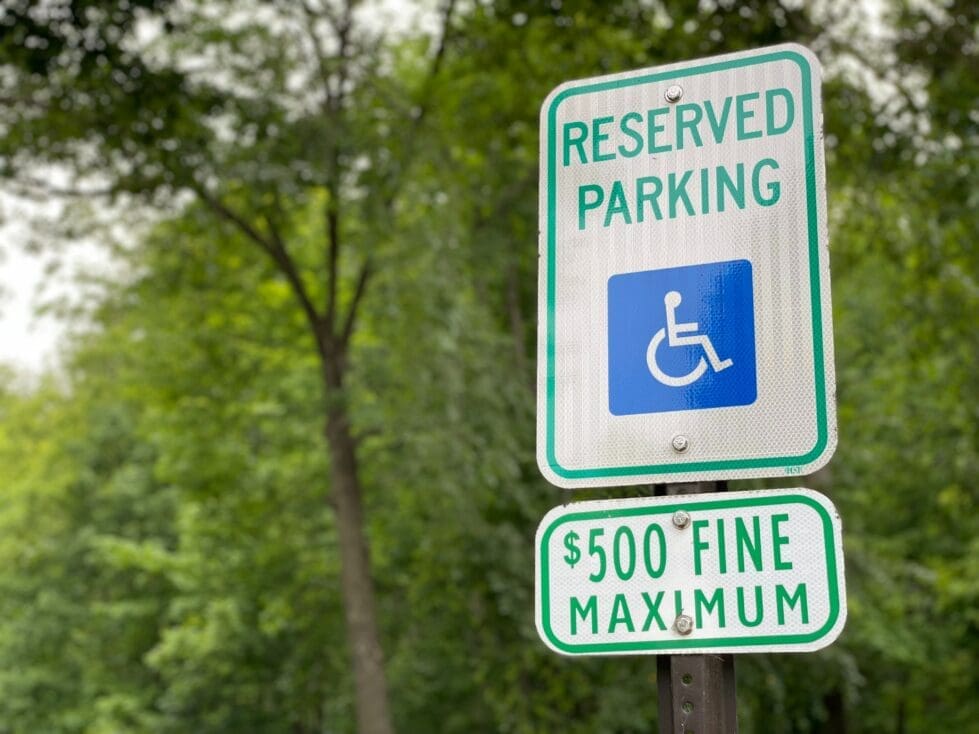
Bill increasing fines related to handicapped parking spaces passes House committee.
Photo by Steve Dimatteo on Unsplash
A bill that would increase the number of handicapped parking spaces, update guidelines for them and increase fines for illegally parking in them is headed to the House floor.
The House Health & Human Development on Wednesday OK’d House Bill 175, sponsored by Rep. Deshanna Neal, D-Elsmere, is designed to force sites to comply with the Americans with Disabilities Act.
The bill increases the fine for unlawfully parking in handicap parking spaces from $200 to $250 for the first offense and increases the fine to $500 for any subsequent offenses.
There would also be a civil penalty of up to $50,000 for any parking space that is changed without a permit from the relevant municipality or county or is changed but doesn’t comply with the standards the bill requires for handicap parking spaces.
The parking space has to comply with rules that say the space needs to have a sign at least 12 inches wide and 18 inches tall that must be clearly visible to a person parking in the space, and be a minimum of 60 inches above the ground.
A sign isn’t required if a lot has four or fewer parking spaces or if parking spaces are assigned to people of an apartment complex.
Neal, who uses a wheelchair, said the spots aren’t always accessible.
“The University of Delaware did a study of dozens of parking lots across the state and it showed that 63% of our parking lots do not pass current ADA standards,” Neal said. “You don’t always look at the accessible parking spots…but upon becoming chronically ill and disabled, I started recognizing just how difficult it was for me to access just the most basic parts of society.”
Rep. Charles Postles, R-Milford, said he felt the $50,000 civil penalty was too steep and asked who decides how much of the $50,000 civil penalty to charge.
“When we look at other kinds of, not parking violations, but things that could also be life threatening,” he said, such as speeding, the penalties for those “almost pale in comparison to this figure.”
Neal responded that the penalty is up to $50,000, and that it’s at the discretion of the municipality to get businesses to correct issues with the handicap parking spaces.
Rep. Mike Smith, R-Pike Creek, said that the bill will mostly apply to larger businesses and the owners of shopping centers.
“In most cases … they’re all going to be in the shopping centers. They’ll deal with that when they’re already going through land use processes with their county, their municipality,” he said. “This is really affecting the owners of bigger shopping centers for the most part.”
Michael Spencer, mayor of Newport, said the Delaware League of Local Governments thinks the bill needs work.
For one thing, he said, the league would like to see the bill include a 90-day period that allowed someone out of compliance to correct the problem.
Scott Kidner, speaking on behalf of the Central Delaware Chamber of Commerce, said they also take issue with the $50,000 penalty.
“The $50,000 is, from our point of view, quite excessive,” Kidner said. “That becomes more than just, ‘Hey, you need to get this done.’ That becomes ‘We’re gonna put you out of business if you don’t do what we ask you to do, small business owner.’”
While the bill was approved by the committee, four of the five Republicans on the committee voted against it.
Related Story: Lead remediation bill seems to be heading to Senate floor
The bill, which doesn’t require a fiscal note, has 18 additional sponsors and cosponsors, all Democrats.
The committee also approved Senate Bill 9, sponsored by Sen. Sarah McBride, D-Wilmington, which would create the Delaware State Lead-Based Paint Program and add increased requirements to address the presence of lead in Delaware. It passed with 3 favorable votes and seven on its merits.
The lead bill already had unanimously passed the Senate. It now heads to the House Appropriations Committee before it can get a floor vote.
Share this Post



